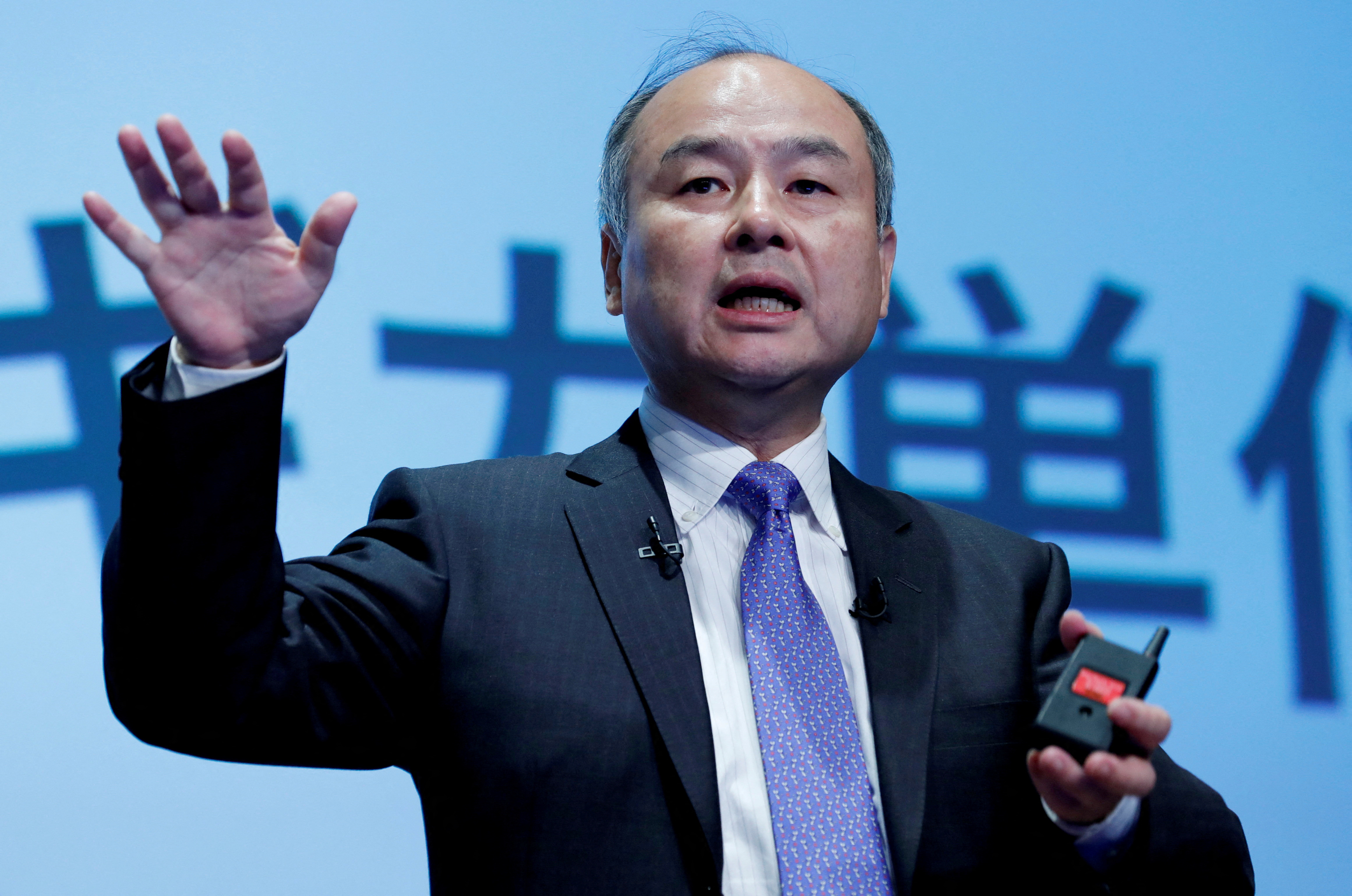WeWork’s largest stakeholder, SoftBank, is behind a $3 billion debt-for-equity exchange agreement, according to the most recent development in the company’s story. This audacious action is indicative of SoftBank’s resolute attempts to salvage some of its enormous assets while trying to turn around the struggling office space supplier. WeWork’s financial difficulties can be attributed to its costly long-term leasing agreements and aggressive development, both of which were signed during founder Adam Neumann’s period of explosive growth.

Credits: Reuters
WeWork’s Debt Burden
At the heart of WeWork’s financial troubles lies a staggering $13.3 billion in long-term lease obligations, accounting for over 70% of its total debt as of the end of June. These agreements, which seemed promising during the boom years, became an insurmountable burden as the COVID-19 pandemic accelerated the shift towards remote work, leading to a sharp drop in demand for office space. Consequently, WeWork was forced to renegotiate some of these leases, successfully reducing its obligations by more than $2 billion since the close of 2022.
WeWork’s Persistent Cash Crunch
Despite these renegotiations, WeWork’s cash flow struggles persisted. Lease payments continued to devour nearly 75% of its revenue during the second quarter of 2023, which was the last time the company reported its financial results. This dire financial situation left WeWork with limited options, ultimately leading to the decision to file for bankruptcy on Monday, underscoring the severity of the company’s challenges.
SoftBank’s Changing Fortunes
The story of WeWork’s fall from grace holds particular significance for SoftBank, whose founder, Masayoshi Son, had placed substantial bets on the company’s success. SoftBank’s exposure to WeWork has evolved over the years, with the conglomerate writing down a significant portion of its initial investment. Still, as of the end of June, SoftBank maintained a credit support deal with WeWork worth $1.1 billion. While this credit support is a substantial commitment, it remains uncertain how much of it has been withdrawn, indicating that SoftBank’s actual financial involvement in WeWork’s rescue remains unclear.
SoftBank’s Stance and Future Prospects
SoftBank did not respond to inquiries about the details of the credit support it provided to WeWork. The business did, however, state that it thought WeWork’s restructuring agreement was the best way for the startup to restructure its operations and get out of bankruptcy. The fact that SoftBank is dedicated to operating in its investors’ best long-term interests highlights how complicated the situation is.
The Rise and Fall of WeWork
WeWork’s early development and growth was a major turning point in the startup and technology investment industry, a representation of SoftBank’s bold bets that were changing the game. But the company’s sudden demise has made it a cautionary story about Masayoshi Son’s propensity for riskier bets. SoftBank’s attempt to save WeWork in 2019 by investing more than $10 billion was brought on by the company’s IPO debacle. Son was humbled by this experience, as he freely acknowledged that his judgment in handling the firm had been “poor” in many ways. This was an unusual acknowledgement from a leader renowned for his unflinching confidence.
Uncertain Future for SoftBank and WeWork
SoftBank owns about 71% of WeWork, thus the outcome of the debt-for-equity transaction could significantly affect the company’s standing financially and its level of influence at the firm. Interestingly, WeWork, formerly privately valued at an astounding $47 billion, is currently valued at a much lower $44 million. The future of both businesses is unclear because the story doesn’t discuss how SoftBank’s ownership in WeWork would alter as a result of the transaction.
In summary, WeWork’s debt-for-equity swap agreement with its creditors, arranged by SoftBank, marks a turning point in the turbulent history of the firm. The difficulties WeWork faces as a result of its massive debt load and pricey lease arrangements are highlighted in the article, along with SoftBank’s changing role in the struggling business. The action raises concerns about the final result of this risky financial decision and reflects the shifting fortunes of SoftBank and WeWork.












